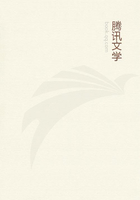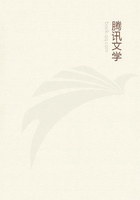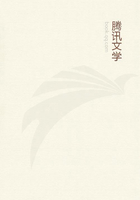We had promised, then, that we would say something against those who attribute the calamities of the Roman republic to our religion, and that we would recount the evils, as many and great as we could remember or might deem sufficient, which that city, or the provinces belonging to its empire, had suffered before their sacrifices were prohibited, all of which would beyond doubt have been attributed to us, if our religion had either already shone on them, or had thus prohibited their sacrilegious rites.These things we have, as we think, fully disposed of in the second and third books, treating in the second of evils in morals, which alone or chiefly are to be accounted evils; and in the third, of those which only fools dread to undergo--namely, those of the body or of outward things--which for the most part the good also suffer.But those evils by which they themselves become evil, they take, I do not say patiently, but with pleasure.And how few evils have I related concerning that one city and its empire! Not even all down to the time of Caesar Augustus.What if I had chosen to recount and enlarge on those evils, not which men have inflicted on each other;such as the devastations and destructions of war, but which happen in earthly things, from the elements of the world itself.Of such evils Apuleius speaks briefly in one passage of that book which he wrote, De Mundo, saying that all earthly things are subject to change, overthrow, and destruction.(1)For, to use his own words, by excessive earthquakes the ground has burst asunder, and cities with their inhabitants have been clean destroyed: by sudden rains whole regions have been washed away; those also which formerly had been continents, have been insulated by strange and new-come waves, and others, by the subsiding of the sea, have been made passable by the foot of man: by winds and storms cities have been overthrown; fires have flashed forth from the clouds, by which regions in the East being burnt up have perished; and on the western coasts the like destructions have been caused by the bursting forth of waters and floods.So, formerly, from the lofty craters of Etna, rivers of fire kindled by God have flowed like a torrent down the steeps.If I had wished to collect from history wherever I could, these and similar instances, where should I have finished what happened even in those times before the name of Christ had put down those of their idols, so vain and hurtful to true salvation? I promised that I should also point out which of their customs, and for what cause, the true God, in whose power all kingdoms are, had deigned to favor to the enlargement of their empire; and how those whom they think gods can have profited them nothing, but much rather hurt them by deceiving and beguiling them; so that it seems to me I must now speak of these things, and chiefly of the increase of the Roman empire.For I have already said not a little, especially in the second book, about the many evils introduced into their manners by the hurtful deceits of the demons whom they worshipped as gods.
But throughout all the three books already completed, where it appeared suitable, we have set forth how much succor God, through the name of Christ, to whom the barbarians beyond the custom of war paid so much honor, has bestowed on the good and bad, according as it is written, "Who maketh His sun to rise on the good and the evil, and giveth rain to the just and the unjust."(2)CHAP.3.--WHETHER THE GREAT EXTENT OF THEEMPIRE, WHICH HAS BEEN ACQUIRED ONLY BY WARS, IS TO BE RECKONED AMONG THEGOOD THINGS EITHER OF THE WISE OR THE HAPPY.
Now, therefore, let us see how it is that they dare to ascribe the very great extent and duration of the Roman empire to those gods whom they contend that they worship honorably, even by the obsequies of vile games and the ministry of vile men: although I should like first to inquire for a little what reason, what prudence, there is in wishing to glory in the greatness and extent of the empire, when you cannot point out the happiness of men who are always rolling, with dark fear and cruel lust, in warlike slaughters and in blood, which, whether shed in civil or foreign war, is still human blood; so that their joy may be compared to glass in its fragile splendor, of which one is horribly afraid lest it should be suddenly broken in pieces.
That this may be more easily discerned, let us not come to nought by being carried away with empty boasting, or blunt the edge of our attention by loud-sounding names of things, when we hear of peoples, kingdoms, provinces.
But let us suppose a case of two men; for each individual man, like one letter in a language, is as it were the element of a city or kingdom, however far-spreading in its occupation of the earth.Of these two men let us suppose that one is poor, or rather of middling circumstances; the other very rich.
But the rich man is anxious with fears, pining with discontent, burning with covetousness, never se cure, always uneasy, panting from the perpetual strife of his enemies, adding to his patrimony indeed by these miseries to an immense degree, and by these additions also heaping up most bitter cares.But that other man of moderate wealth is contented with a small and compact estate, most dear to his own family, enjoying the sweetest peace with his kindred neighbors and friends, in piety religious, benignant in mind, healthy in body, in life frugal, in manners chaste, in conscience secure.I know not whether any one can be such a fool, that he dare hesitate which to prefer.As, therefore, in the case of these two men, so in two families, in two nations, in two kingdoms, this test of tranquility holds good; and if we apply it vigilantly and without prejudice, we shall quite easily see where the mere show of happiness dwells, and where real felicity.

